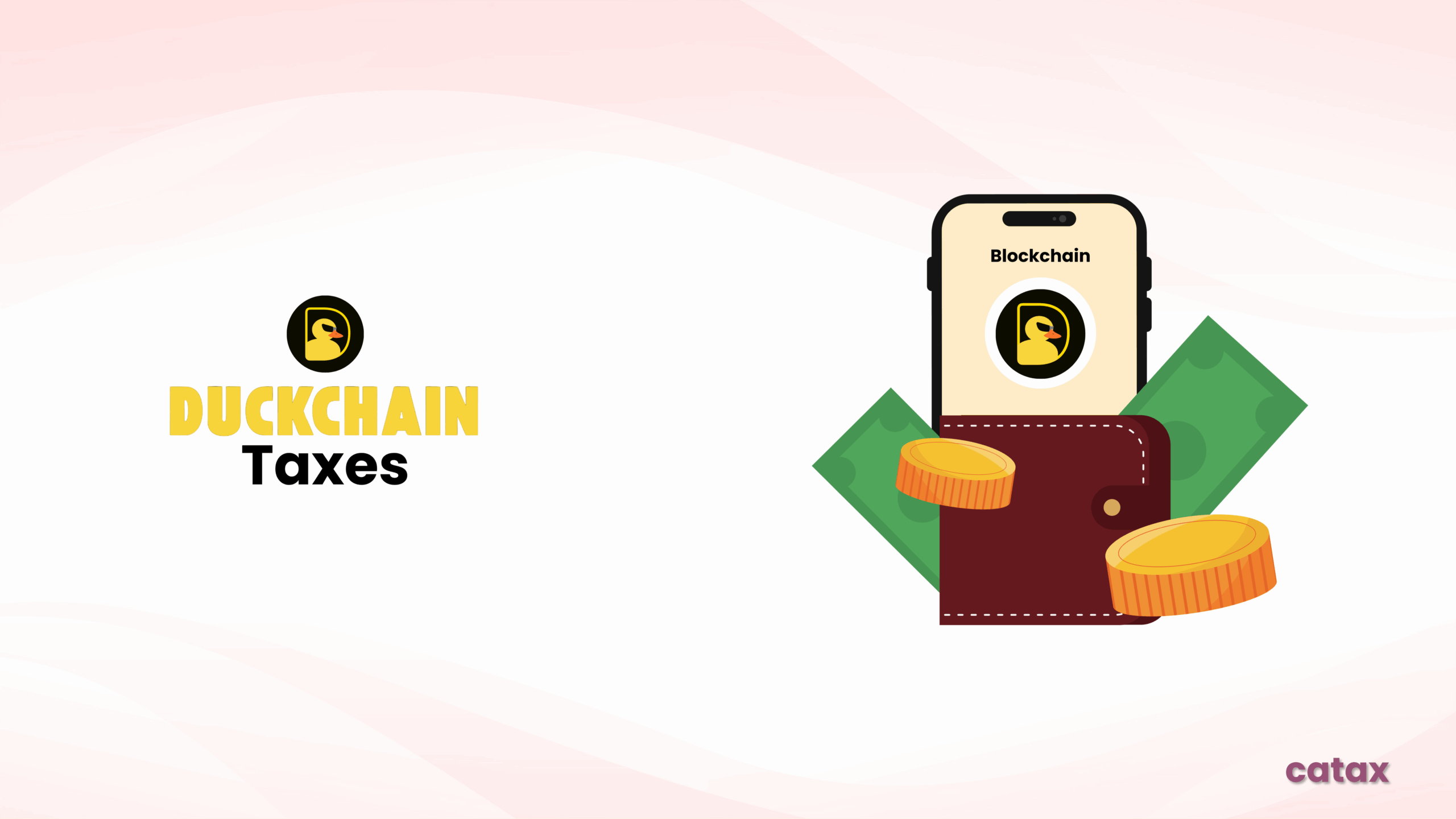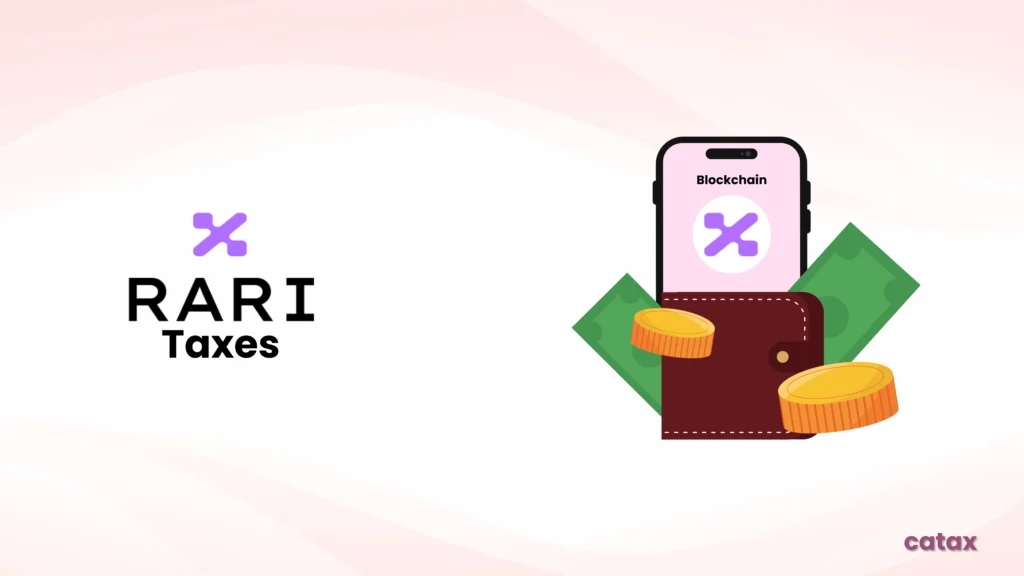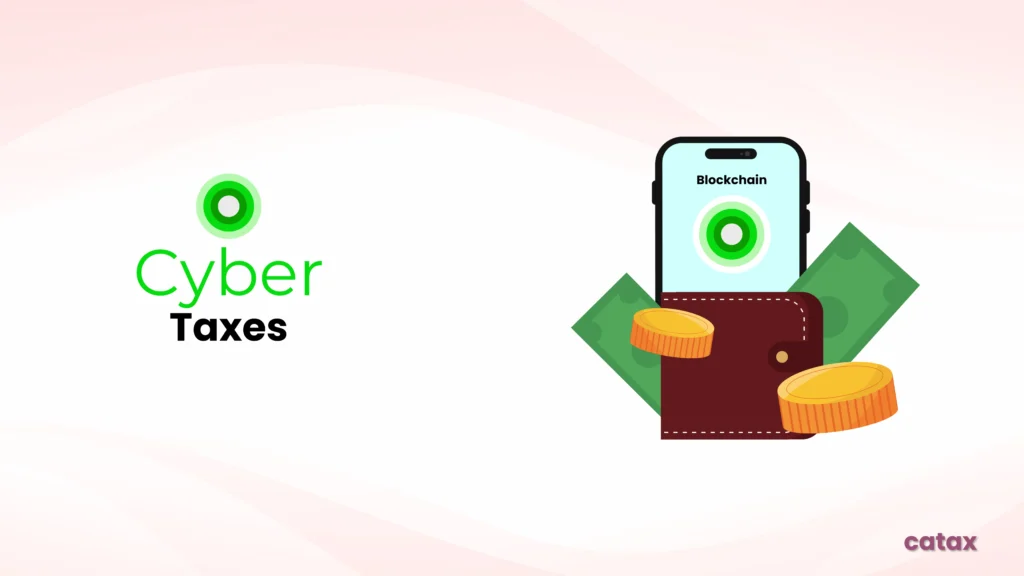Cryptocurrency tax rules vary by country, and DuckChain (DUCK) taxes transactions may be taxed differently depending on local regulations. Whether you buy, sell, trade, or stake DUCK, understanding how tax authorities classify these activities helps you stay compliant and avoid penalties.
This guide simplifies DuckChain tax rules so you can manage your taxes confidently and stay on the right side of the law.

- How to Connect Your DuckChain Wallet to Catax?
- Are DuckChain (DUCK) Transactions Taxable?
- Can You Deduct Trading Fees and Other DUCK-Related Costs?
- How Is DuckChain (DUCK) Taxed Based on Holding Period?
- How Is Staking Income Taxed?
- Can You Claim DuckChain Losses for Tax Benefits?
- How to Stay Compliant with DuckChain (DUCK) Tax Rules
How to Connect Your DuckChain Wallet to Catax?
To easily track your DuckChain (DUCK) transactions and calculate taxes, follow these simple steps to connect your wallet to Catax:
- Open your DuckChain wallet or access a supported block explorer (such as Keplr, Cosmostation, Ledger, or any compatible wallet).
- Copy your public DuckChain wallet address.
On Catax:
- Log in to your Catax account and select your country.
- Choose Chain, then search for DuckChain Wallet.
- Paste your public wallet address and click Connect.
Once linked, Catax will automatically track your DUCK transactions, helping you simplify your crypto tax reporting and stay compliant.
Calculate My Taxes ➤Are DuckChain (DUCK) Transactions Taxable?
Yes, in most countries, DuckChain (DUCK) transactions are taxable. Tax authorities may treat DUCK as a capital asset, property, or income depending on its use.
When Do You Have to Pay Taxes on DuckChain (DUCK)?
You may owe taxes when you:
- Sell DUCK for a profit – Gains from selling DUCK above your purchase price are usually subject to capital gains tax.
- Trade DUCK for another crypto – Swapping DUCK for Bitcoin, Ethereum, or any other crypto may trigger a taxable event.
- Use DUCK for purchases – Buying products or services with DUCK can create a taxable gain if DUCK increased in value since you acquired it.
- Earn DUCK from staking – Staking rewards in DUCK are often treated as income and taxed when received.
- Receive DUCK as payment – Payments in DUCK for goods or services are generally taxed as income based on DUCK’s fair market value at the time received.
Since tax rules vary, always review how your country treats crypto transactions.
Can You Deduct Trading Fees and Other DUCK-Related Costs?
Whether DUCK-related expenses are deductible depends on local tax regulations. In many jurisdictions, the following may be deductible:
- Trading fees incurred when buying or selling DUCK
- Network fees for transferring DUCK between wallets
However, some countries only allow deduction of:
- The original purchase cost (cost basis) of DUCK — without additional expense deductions.
Check your local laws to confirm what deductions apply.
How Is DuckChain (DUCK) Taxed Based on Holding Period?
Your tax rate on DUCK gains may depend on how long you held the tokens:
- Short-term holdings (<1 year) – Often taxed at regular income tax rates.
- Long-term holdings (≥1 year) – Some countries offer reduced tax rates for long-term crypto gains.
- Flat-rate systems – In certain regions, a single tax rate applies regardless of holding time.
Knowing how DUCK is taxed in your country can help you make smarter tax decisions and reduce your liabilities.
You can also check out our Country-Specific Guide for Crypto in Your country. This guide provides insights on regulations, tax implications, and compliance measures breifly explained for each country.
How Is Staking Income Taxed?
Staking DuckChain (DUCK) tokens offers passive income, but how that income is taxed depends on your country’s tax regulations. Some tax staking rewards when you receive them, while others wait until you sell or exchange the tokens.
How Countries Tax DUCK Staking Rewards
- Taxed as income – In many countries, staking rewards are treated like a salary. You owe taxes as soon as you receive DUCK rewards, based on their market value at the time.
- Taxed as capital gains – Some jurisdictions tax staking rewards only when you sell or exchange them, meaning only the gain from the sale is taxed.
If you stake DUCK, it’s important to understand when your country applies taxes so you can plan and budget for any obligations—even if you don’t sell the rewards.
Can You Claim DuckChain Losses for Tax Benefits?
Not all DUCK trades result in profit, and selling at a loss may reduce your tax bill depending on your country’s rules. How Countries Handle DUCK Losses:
- Loss offsets – Some countries let you subtract DUCK losses from your total gains, so you only pay taxes on net profits.
- Loss carryforward – If you don’t have any crypto profits this year, some tax systems let you carry your DUCK losses forward to future years.
Accurate transaction records are key to reporting your losses and claiming any available tax relief.
How to Stay Compliant with DuckChain (DUCK) Tax Rules
As crypto tax laws evolve, it’s critical to stay informed and compliant. Here are some steps to help:
- Know how your country taxes DUCK transactions – Are gains treated as income, capital gains, or business revenue?
- Check what costs you can deduct – Some countries allow deductions for trading fees, staking rewards, and storage costs.
- Maintain detailed transaction records – Track every DUCK buy, sell, stake, or spend.
- Use a crypto tax platform like Catax – It automates DUCK transaction tracking and tax reporting for easier filing.
- Consult a tax expert – If you’re unsure about your tax obligations, a professional can help you interpret local regulations.
By staying organized and proactive, you can manage DUCK taxes smoothly and avoid costly penalties.
Book a Free Consultation Now →

